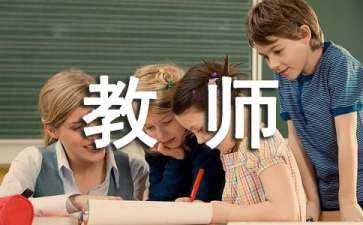Module 12 A holiday journey(通用4篇)
Module 12 A holiday journey 篇1
module 12 a holiday journey
一. 教学内容:
module 12 a holiday journey
二. 重点、难点
(一)形容词与副词的比较级和最高级(ii)
1. 形容词副词比较级和最高级的构成
2. 形容词副词最高级常用的结构:the+最高级+比较范围。
(二)一般过去时
三. 具体内容
(一)形容词与副词的比较级和最高级(ii)
1. 形容词副词比较级和最高级的构成
大多数形容词(性质形容词)和副词有比较级和最高级的变化,即原级、比较级和最高级,用来表示事物的等级差别。原级即形容词的原形,比较级和最高级有规则变化和不规则变化两种。
(1)规则变化
构成法 原级 比较级 最高级
一般单音节词和少数双音节词,加词尾-er,-est tall
great taller
greater tallest
greatest
以不发音的e结尾 的单音词和少数 -le结尾的双 音节词只加-r,-st nice
large
able nicer
larger
abler nicest
largest
ablest
以一个辅音字母结尾的闭音节单音节词,双写结尾的辅音字母,再加-er,-est big
hot bigger
hotter biggest
hottest
以辅音字母+y 结尾的双音节词, 改y为i,再加 -er,-est easy
busy easier
busier easiest
busiest
部分双音节词和多音节词,在前面加more,most important
easily more important
more easily most important
most easily
(2)必须记忆的不规则变化
原级 比较级 最高级
good/well better best
bad /ill worse worst
old older/elder oldest/eldest
much/many more most
little less least
far farther/further farthest/furthest
2. 形容词副词最高级常用的结构:the+最高级+比较范围。最高级表示三者或三者以上人或事物中“最……”,其中最高级前通常加定冠词,物主代词,名词所有格。比较范围是短语或从句。如:
spring is the best season of the year.(比较范围为短语)
春季是一年中最好的季节。
this is the best picture that he has ever painted.(比较范围为从句)
这是他画的最好的一张画。
of all his novels, i like this one best.
他的小说中我最喜欢这一本。
he works the hardest among the three boys. 在三个男孩中他工作最努力。
形容词副词最高级的其他用法:
(1)形容词副词最高级前可以有一个表示程度的副词或数词。如:
of the three boys nick is almost the cleverest.这三个男孩中,尼克差不多是最聪明的了。
the yellow river is the second longest river in china. 黄河是中国的第二大河。
she is by far the most active member in our group. 她是我们组最活跃的成员。
(2)在作表语的形容词最高级前,如果不和别的相比,常常不加冠词。如:
this is where the river is deepest.
这是河流的最深处。
put the picture where light is best.
把这张画挂在光线最亮处。
(二)一般过去时
1. 概念:
(1)在确定的过去时间里所发生的动作或存在的状态。一般过去时表示的动作或状态都已成为过去,现已不复存在时间状语有:yesterday, last week, an hour ago, the other day, in 1982等。
比如:where did you go just now?
(2)表示在过去一段时间内,经常性或习惯性的动作。
比如:when i was a child, i often played football in the street.
whenever the browns went during their visit, they were given a warm welcome.
(3)注意:用过去时表示现在,表示委婉语气。
a. 动词want, hope, wonder, think, intend 等。
i wondered if you could help me.
b.情态动词 could, would.
could you lend me your bike?
2. 句型:
(1)肯定句:主语+动词的过去式+其它。
eg. l watched tv last night.
(2)否定句:主语+didn’t+动词原形+其它。
eg. i didn’t play basketball yesterday.
(3)一般疑问句:did+主语+动词原形+其它?
eg. did you get up early this morning?
(4)特殊疑问句:特殊疑问词+did+主语+动词原形+其它?
eg. what did you do just now?
when were you born?
(5)特殊句型:
it is time for sb. to do sth“到……时间了”“该……了”
it is time sb. did sth. “时间已迟了”“早该……了”
eg.
it is time for you to go to bed. 你该睡觉了。
it is time you went to bed.你早该睡觉了。
3. 常与一般过去时连用的时间状语
at that time, then, at that moment, yesterday, the other day(几天前) yesterday+时间名词(yesterday morning), last+时间名词(last night), 一段时间+ago(several days ago), just now, in+过去年份(in 1990), the day before yesterday, once upon a time, long before, long, long ago
4. 动词过去式
动词过去式的规则变化
(1)一般情况下在动词词尾加-ed,词尾-ed在浊辅音和元音后面读[d],在清辅音后面读[t],在[t]和[d]音后面,词尾-ed一律读[id]。比如:
climb → climbed [d] call → called [d] stay → stayed [d]
play → played [d] work → worked [t] help → helped [t]
want → wanted [id] need → needed [id] shout → shouted [id]
(2)词尾是e的动词加-d,读音仍遵照第①条中规则。如:
live → lived [d] love → loved [d] like → liked [t] hope → hoped [t]
(3)以一个元音字母加一个辅音字母结尾的重读闭音节,应双写该辅音字母,再加-ed,词尾-ed的读音仍遵照第①条规则。如:
plan → planned [d] stop → stopped [t]
(4)以辅音字母+y结尾的动词,要先将y改为i再加-ed,词尾-ed一律发[d]。如:
carry → carried [d] study → studied [d] cry → cried [d]
try → tried [d] worry → worried [d]
动词过去式的不规则变化:
<1> 把动词原形中的i改为a,变成过去式。如:
begin—began,drink—drank,give—gave,ring—rang,sing—sang,sit—sat,swim—swam
<2> 把重读开音节中的i改为o,变成过去式。如:
drive—drove,ride—rode,write—wrote
<3> 改动词原形中的aw /ow为ew,变成过去式。如:
draw—drew,grow—grew,know—knew,throw—threw(动词show除外,show—showed)
<4> 动词原形中的e改为o,变成过去式。如:
get—got,forget—forgot
<5> 动词原形中的ee改为e,变成过去式。如:
feed—fed,meet—met
<6> 动词原形中的eep改为ept,变成过去式。如:
keep—kept,sleep—slept,sweep—swept
<7> 动词原形中的eak改为oke,变成过去式。如:
break—broke,speak—spoke
<8> 动词原形中的ell改为old,变成过去式。如:
sell—sold,tell—told
<9> 动词原形中的an改为oo,变成过去式。如:
stand—stood,understand—understood
<10> 以ought和aught结尾,且读音是〔 :t〕的过去式。如:
bring—brought,buy— bought,think—thought,catch—caught,teach—taught
<11> 以ould结尾且读音为〔ud〕的情态动词过去式。如:
can—could,shall—should,will—would
<12> 把动词原形中的o改为a,变成过去式。如:
come—came,become—became
<13> 在动词原形后加d或t变成过去式,并发生音变。如:
hear〔hi 〕—heard〔h :d〕, say〔sei〕—said〔sed〕,mean〔mi:n〕—meant〔ment〕
<14> 动词的过去式与动词原形一样。如:
let—let,must—must,put—put,read—read〔red〕
<15> 不符合上述规律的动词过去式。如:
am,is—was,are—were,build—built,do—did,eat—ate,fall—fell,feel—felt,find—found,fly—flew,go—went,have /has— had,hold—held,leave—left,make—made,may—might,run—ran,see—saw,take—took
【典型例题】
一. 英汉互译
1. 从前_______________________
2. 指向____________________
3. 首先,起初___________________
4. 骑自行车去……___________¬__
5. 看电视______________________
6. 穿过_____________________
7. 外国工程师__________________
8. 从事_____________________
9. 向……挥手____________________
10. 最新消息________________
11. 十一年之后_________________
12. 在度假__________________
13. 过的愉悦__________________
14. 在飞机场________________
15. 去游泳____________________
16. look around ____________
17. at the age of ____________
18. national hero ___________
19. go away____________________
20. move to__________________
答案:
1. once upon a time 2. point to/at 3. at first 4. ride a bike to…/go cycling
5. watch tv/television 6. go through 7. a foreign engineer 8. work on
9. wave to 10. latest news 11. eleven years later 12. on holiday 13. enjoy oneself
14. at the airport 15. go swimming 16. 环顾四周/向四周看 17. 在……岁时
18. 民族英雄 19. 走开/离去 20. 搬到……
二. 按要求写出下列单词的相应形式
1. live(过去式)_________ 2. somebody(否定词)__________
3. begin(现在分词)_________ 4. closed(反义词)____________
5. sleep(形容词)__________ 6. with(反义词)_______________
7.die(现在分词)___________ 8. write(表示人的名词)___________
9. become(过去式)__________ 10. success(形容词)_______________
11. poor(反义词)___________ 12. hero(复数)_________________
13. russia(形容词)__________ 14. safe(副词)___________________
15. three(序数词)____________ 16. build(过去式)________________
17. flight(动词)_____________ 18. wife(对应词)________________
19. get to(同意词)_______________ 20. open(反意词)______________
答案:
1. lived 2.nobody 3. beginning 4. open 5. asleep 6. without 7. dying 8. writer
9. became 10. successful 11. rich 12. heroes 13. russian 14. safely
15. third 16. built 17. fly 18. husband 19. arrive at/in 20. closed/close
三. 根据句意及首字母提示补全单词,完成下列句子
1. look! the sunset is so beautiful with a g________ colour.
2. he walked out quietly, and no one n____________ him.
3. his book was in the room, so he e___________ the room to get it.
4. china is f____________ for its food.
5. china is a great country with a long h____________.
6. william shakespeare wrote a lot of plays and p_________.
7. this is my brother. he j________ the army three years ago.
8. the plane l_________ safely.
9. we s________ in the pacific ocean at santa monica. it was great.
10. we’re going to have a trip in los angeles on h__________.
答案:
1. golden 2. noticed 3. entered 4. famous 5. history 6. poems 7. joined
8. landed 9. swam 10. holiday
四. 用所给单词的适当形式填空。
1. they decided________________ (go) for a ride in the forest.
2. she walked in the forest and ____________(pike) some flowers.
3. she was ____________(lose) in the big city.
4. the two big chairs were_________________(comfortable). she didn’t like them.
5. tom played computer______________(game) with his father last night.
6. he ____________(marry) in 1582 and had three children.
7. it was very difficult_____________(work) out that maths problem.
8. when he died, the chinese_____________(open) a museum about his life in badaling.
9. where______________(be) you two days ago?
10. i didn’t have____________ (some) good friends here.
答案:
1. to go 2. picked 3. lost 4. uncomfortable 5. games 6. married
7. to work 8. opened 9. were 10. any
五. 单项选择。
1. i think she must be ¬¬¬¬¬¬¬¬¬¬¬¬¬¬_______ home.
a. in b. at c. to d. on
2. they decided ________ for the lost bird.
a. look b. looking c. to look d. to looking
3. i want li lei _________with me today.
a. stay b. staying c. stays d. to stay
4. don’t point ________ the others with your finger. it’s impolite.
a. at b. on c. for d. of
5. will you ________ your hometown tomorrow?
a. return b. get back c. return to d. give back to
6. the little girl ________ the bears’ house.
a. rushed out b. rushed c. rush out of d. rushed out of
7. there is a purse on the floor. please __________.
a. pick it up b. pick up it c. pick them up d. pick up them
8. could you ________ me a story?
a. ask b. speak c. say d. tell
9. they went to school without _________ breakfast.
a. have b. has c. to have d. having
10. the children enjoy _______ the interesting story______.
a. listening to; again and again b. to listen to; again and again
c. listening to; again after again d. to listen to ;again after again
11. — _______ were you born, jack? — i was born in november ,1996.
a. where b. when c. when and where d. what time
12. — ______ did he go to school? — he rode a bike to school.
a. when b. why c. how d. where
13. he ______ playing computer games _____ this.
a. like; like b. likes; likes c. likes; like d. like; likes
14. shakespeare liked ______ plays at school.
a. watch b. watched c. to watching d. watching
15. they started to work _____ fifteen.
a. at age of b. in age of c. at the age of d. in the age of
16. look! that shop is _______. let’s go and buy some fruit in it.
a. open b. opened c. close d. closed
17. did you like to ______ television?
a. see b. watch c. read d. look at
18. i often go swimming _______ summer.
a. at b. on c. in d. of
19. — _____ the film about zhan tianyou? —it’s very exciting.
a. what do you think b. what do you like
c. what do you think of d. how do you think of
20. —_________? — he is an engineer.
a. what does he like b. what does he do
c. what’s he like d. how is he
21. look! that tunnel goes ______ the mountain.
a. across b. through c. over d. cross
22. there is a bridge ______ the river.
a. on b. over c. under d. in
23. he returned to the earth after his journey_____ space.
a. of b. for c. into d. with
24. jay chow(周杰伦) is a ______ pop singer in china.
a. 27 years old b. 27 year old c. 27-years-old d. 27-year-old
25. she started to work______ a teacher in india in 1928.
a. for b. as c. on d. out
答案:1—5 bcdac 6—10 dadda 11—15 bccdc 16—20 abccb
21—25 bbcdb
Module 12 A holiday journey 篇2
unit 3 language in use ⅰteaching model revision and practice ⅱteaching methodformal and interactive practice , task-based ⅲteaching aimsto summarise and consolidate the usage of “will” and the new vocabulary . ⅳteaching aids ohp , handouts ⅴteaching stepsstep 1 revision1. review the text of unit 2. 2. grammar : past simple irregular verbs step 2 language practice1.read through the example sentences in the box with the whole class and make sure the students have understood that irregular verbs work in a different way to regular ones . 2.work in pairs . ask and answer about your holidays . use the words to help you . 3.work with a new partner. ask and answer about your first partner .step 3 exercise1.match the words in box 1 with those in box 2 . 2. write questions . 1) what / you do ?2) when / you go ?3) how long / you stay ?4) you / have a nice time ?3.write six things you did on last holiday . step 4 around the world 1. look at the picture and say what they can see . 2. read the text and answer any questions the students have . 3. explain the important and difficult points1. buy… for … 给……买……相当于 buy sb. sth. eg: my father bought a new watch for me . = my father bought me a new watch . 我父亲给我买了一辆新自行车 。 2. have a holiday 度假 where did they have a holiday ? 他们在哪度的假。 step5 work in groupsask and answer about the students’ last holiday . 1.where did you go ?2.who did you go with ?3.how long did you stay ?4.how did you get there ?5.where did you stay ?6.what did you do ?step 6 exercises :1.write your answers to activity 6 . i went to … i went with …2.write an email to your friend about your holiday .3.wb. ex. 13 , 14 , 15&16
Module 12 A holiday journey 篇3
module 12 a holiday journey
一. 教学内容:
module 12 a holiday journey
二. 重点、难点
一般过去时(v)
三. 具体内容:
(一)一般过去时(v)
1. 有些动词的过去式的变化是不规则的。如:
be —was/ were do —did
eat— ate go—went
have— had leave— left
make— made meet— met
see—saw spend —-spent
swim — swam take — took
come—came send—- sent
write —- wrote read —- read
sit— sat buy — bought
2. 不规则动词一般过去时的肯定、否定、一般疑问句以及特殊疑问句都与规则动词的相同。
肯定 否定 一般疑问句及回答 特殊疑问句及回答
you/she/he/we/ they swam in the lake. you/she/he/
we/they didn’t swim in the lake. did you/she/he/we/ they swim in the lake?
yes, i/she/he/we/they did.
no, she/he/we/they didn’t. what did you/she/he
/we/they do?
i /she/he/we/
they swam in the lake.
it took 2 hours to go there. it didn’t take 2 hours to go there. did it take 2 hours to go there?
yes, it did.
no, it didn’t how long did it take to go there?
it took 2 hours to go there.
(二)知识辅导:
1. —what are you going to do on holiday, tony?
—we’re going to los angeles.
—你假期打算做啥,托尼?—我打算去洛杉矶。
洛杉矶是美国第二大城市,位于加利福尼亚州,该城市以好莱坞和迪斯尼乐园而文明于世。
be on holiday / have a holiday 在度假
比如:i’m on holiday in london with my friend jenny.
我和詹妮在伦敦度假
2. we had a great time. 我们玩得很高兴。
have a great time/ good time/ enjoy oneself玩得很高兴
3. how long did it take to get there? 去那里要用多长时间?
it take sb. some time to do sth. 某人做某事花多长时间
it takes me 2 hours to jinan by bus yesterday.昨天我乘公共汽车去济南花了2 小时。
it took them 3 weeks to finish the work.他们用三周才完成那工作。
4. we arrived by plane last monday and took a taxi to our hotel.
我们乘飞机上周一到达,乘出租车去了旅馆。
by plane / bus/ taxi/ bike/ train乘飞机/公共汽车/出租车/自行车/火车等,注意不加任何冠词,表示通过啥方式,而took a taxi 有冠词,表示具体工具。试比较:
(1)i went by bike yesterday. —i went on my bike yesterday.
(2)i went to beijing by car last week. —i went to beijing in my uncle’s car last week.
5. the next day we visited the british museum and had dinner in a chinese restaurant!
第二天,我们参观了大英博物馆,还在中餐馆吃了饭。
the next day /the followindowsg day 意思是“第二天”,用来叙述过去的事情,注意定冠词the不能丢掉
6. i took lots of photos and i’m sending them with this email to you.
我照了很多相片,我把他们和这封数码邮件一块寄给你。
take a photo 照张相片
take lots of photos 照很多相片
send sth. to sb. 把东西寄给某人
7. tomorrow we’re going to fly home. 明天我们将乘飞机回家
be going to do sth.表示将要做某事
8. say hello to your mum and dad. 对你母亲和父亲问好
say hello to sb. 向某人问好
(三)useful phrases:
1. two years ago 两年前
2. on the same day 在同一天
3. who was with you ? when were you born?
4. at the airport 在机场
5. go swimming a lot
6. how was your journey ? it was great.
7. spend 花费(时间,金钱), 主语是人,其结构:
(1)sb. spend +(时间,金钱)on sth
he spent lots of money on books.
we often spend much time on homework.
(2)sb. spend +时间(in)doing sth.
they spent two hours(in)playing basketball.
8. well 形容词:身体好 副词:好(修饰动词)语气词:嗯
9. take + 交通工具 to sw. 乘……去……
she took a bus to guangzhou last week.
10. go for a walk / ride /swim 去散步/ 兜风/游泳
11. by plane = on a plane = by air 乘飞机
12. read the newspaper 看报纸 a newspaper, two newspapers (报纸可数)
a piece of news 一则新闻 a piece of paper 一张纸
13. send emails 发数码邮件
14. take lots of photos / pictures照很多相片
15. fly to sw. 飞往某地 fly home(不用to)
16. say hello to sb. 向某人问好 say sorry/ goodbye to sb.
17. how long did you +(延续性)动词?how long did you stay there?
18. have a holiday 度假
19. do a lot of shopping 购买了许多物品
20. go on a boat = go boating 去划船
【典型例题】
一. 写出下列单词的过去式
spend _______ go________ see________ meet________
leave________ swim_______ take_______ get_______
have_______ do_______
答案:spent went saw met left swam took got had did
二. 用所给词的正确形式填空:
1. i hope you’re ______.(good)
2. my mother ______(buy)some books for me yesterday.
3. miss han often did some ______(shop)in the evening.
4. what ______ you _____(do)just now?
5. he runs much _____(fast)than tom.
6. what is the ______(big)animal in the world?
7. we had an _________(interest)holiday in america last year.
8. jim is good at _______(study)english.
9. hong kong is a ________(busy)city than tianjin.
10. he _______(see)a film tomorrow with me.
答案:1. well 2. bought 3. shopping 4. did ; do 5. faster 6. biggest
7. interesting 8. studying 9.busier 10. is going to see
三. 用所给动词的适当形式填空:
1. ______(run)is our favorite sport.
2. how long did it take _______(see)your grandparents?
3. huahua usually ______(get)up at seven last year.
4. listen! tom _______(listen) to the music.
5. remember _______(phone)me when you arrive at the station.
6. let’s go _______(fish)together.
7. no _______(smoke)here!
8. you spent too much time ________(play)
9. tony _______(not buy)any food for his parents just now.
10. what ______ you _____(be)when you grow up?
答案:1. running 2. to see 3. got 4. is listening 5. to phone
6. to fish 7. smoking 8. playing 9. didn’t buy 10. will be
四. 单项选择
1. it takes me three hours ___ to the cinema.
a. going b. to go c. go d. went
2. i’d like ______ tom today.
a. to visit b. visit c. visits d. will visit
3. i hope ____ the work soon.
a. to do b. do c. you to do d. doing
4. are you ____ holiday?
a. on b. at c. in d. for
5. i want to do some ____.
a. shop b. shops c. shopping d. shoping
6. we ____ have a football match next week.
a. will b. are going to c. go to d. going to
7. tomorrow ____ be rainy.
a. will b. is going to c. be going to d. are going to
8. —____ does he usually get to school ? —he usually _____ the bus.
a. how,take b. how,takes c. what,take d. what,takes
9. i go to school ____ every day.
a. by foot b. on foot c. on feet d. by feet
10. he ___ the teacher now.
a. listening b. listening to c. is listening to d. are listening
11. timmy goes to school ___ every day. it’s one hour’s walk from his home to school.
a. in a bus b. by plane c. on foot d. by foot
12. bill’s mother often tells him ____ spend too much time playing computer games.
a. not to b. be not c. don’t d. doesn’t
13. what house do you want _____?
a. living b. living in c. to live d. to live in
14. i love windowster _____ it snows.
a. because b. so c. and d. but
15. do you buy ____ for your little sister?
a. something b. anything c. someone d. anyone
答案:1—5 baaac 6—10 babbc 11—15 aadab
五. 完形填空:阅读下面短文,从a、b、c、d中选出能填入短文中相应的答案。
what do you do at the weekend? some people like to _1__ at home, but others like to go ___2__ a walk or play football. my friend jack works hard in a factory during(在期间) the __3__. at the weekend, he always ___4__ the same thing. on saturday he __5__ his car and on __6___ he goes with his family to a village(村庄) by car. his uncle and aunt have a farm there. it isn’t a __7__ one but there is always __8__ to do on the farm. the children help with the animals and give them their __9__ jack and his wife help in the fields. at the end (结束) of the day, they are all __10__ and jack’s aunt gives them a big meal.
1. a. play b. live c. stay d. enjoy
2. a. to b. for c. in d. at
3. a. day b. time c. autumn d. week
4. a. does b. makes c. borrows d. has
5. a. watches b. drives c. sells d. washes
6. a. monday b. sunday c. saturday d. wednesday
7. a. small b. big c. hard d. short
8. a. much b. little c. fast d. far
9. a. clothes b. places c. food d. water
10. a. clean b. late c. hungry d. friendly
答案:1—5 cbdad 6—10 bbacc
Module 12 A holiday journey 篇4
unit1 i went to los angeles two years ago .
ⅰteaching model
listening and speaking ⅱteaching method bottom-up approach ⅲteaching aims1. to understand conversations about holiday journeys . 2. to process main information of holiday experience . 3. to talk about holiday journeys . ⅳteaching objectives key vocabulary : on holiday , journey , have a great time , meet , spend key structures : past simple irregular verbs ⅴteaching aids ohp , tape recorder , handout ⅶteaching stepsstep1 warming-up find these places on the map in activity 1 .1. read out the names of the places and have the students repeat them after you .2. ask them to find the places on the map .step 2 listen and follow betty's journey .1. show some pictures . 2. play the recording and ask the students to listen carefully . 3. play the recording again for them to check . 4. collect the answers from the class in order . step 3 listen and read .1. ask the students to listen to the text while they follow it in their books .2. read through the dialogue .step 4 do exercises 1. answer the questions in activity 4 .1) when did betty go to los angeles on holiday ?2) how long did it take her ?3) where did she go ?4) who met her at the airport ?5) how long did they spend in los angeles ?6) what did they see ?7) where did they go swimming ?2. match these words with the words in the passage in activity 5 .go ― went get ― got have ― had leave ― had meet ― met see ― saw spend ― spent swim ― swam take ― took step 5 pronunciation 1. listen and repeat your answers to activity 5 .2. listen and underline the stressed words in activity 7 . step 6 speakingwork in pairs . talk about a special holiday . ask and answer :1. where did you go ?2. when did you go ?3. how did you get there ?4. how long did you spend there ?5. what did you do or see ?6. what was it like ?step 7 exercisefinish the exercise in the workbook ex. 1 , 2 , 3 , 4&5
推荐站内搜索:过年的日记、一张照片作文、受委屈的作文、山西教师资格证成绩查询、伤心日志、证券从业资格证准考证打印、英语四级考试报名入口官网、自考报名查询、阅兵观后感100字、四川教师资格证成绩查询、


 Module 12 A holiday journey(通用4篇)
Module 12 A holiday journey(通用4篇)


